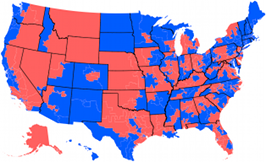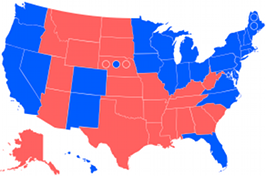Favorable press coverage would lead you to believe that many states have passed laws replacing the “Net Neutrality” regulations that the FCC repealed. The truth is far different.
The so-called Net Neutrality regulations passed under the Barack Obama administration didn’t actually do what you think they did. Critics of the new actions want you to believe those regulations were about things like “throttling,” “discrimination,” and “openness.” That’s not really what it was about at all.
When states like Washington pass a law addressing throttling or discrimination, they actually aren’t “restoring the Net Neutrality regulations that the Trump administration repealed,” as some are suggesting. Because that’s not what was actually repealed!
In fact, it’s the new regulations – the ones passed by the Chairman Ajit Pai-led FCC – that require a degree of openness and transparency that wasn’t required before. The difference between the old law, and the new law that repealed it, is in a technical point of law.
The key point of contention is what law will be used to regulate Internet Service Providers (ISPs). Up until the Obama administration, ISPs were regulated as “information services” under the Telecommunications Act. That law, passed by Newt Gingrich and Bill Clinton, insisted that ISPs be regulated lightly in order to encourage innovation in a rapidly-advancing field.
The Telecommunications Act was an important reason that the Internet developed as fast and as well as it did in America, making us a global leader online. The World Wide Web wasn’t invented in the USA, after all. We just took it over by being the fastest and most innovative at it.
The so-called Net Neutrality regulations passed by Obama FCC Chairman Tom Wheeler threw away that distinction. Instead, it declared that ISPs would from then on be regulated according to Title II of the Communications Act, a much older law with much greater regulatory burdens.
Instead of looking to the future, the Obama-Wheeler FCC wanted to throw us back to the days of the telegraph and radio. Price and content controls are included in this regulation, concepts anathema both to free markets and an open Internet.
Ajit Pai said no, we can do transparency without Title II, so that’s what we’re doing. And no state can reverse that, as no state has the power to order the FCC to re-regulate the Internet.
Once you get the facts, you can see that this whole show is nothing but political posturing, detached from the truth of the matter.


 House of Representatives Swingometer
House of Representatives Swingometer Electoral College Swingometer
Electoral College Swingometer